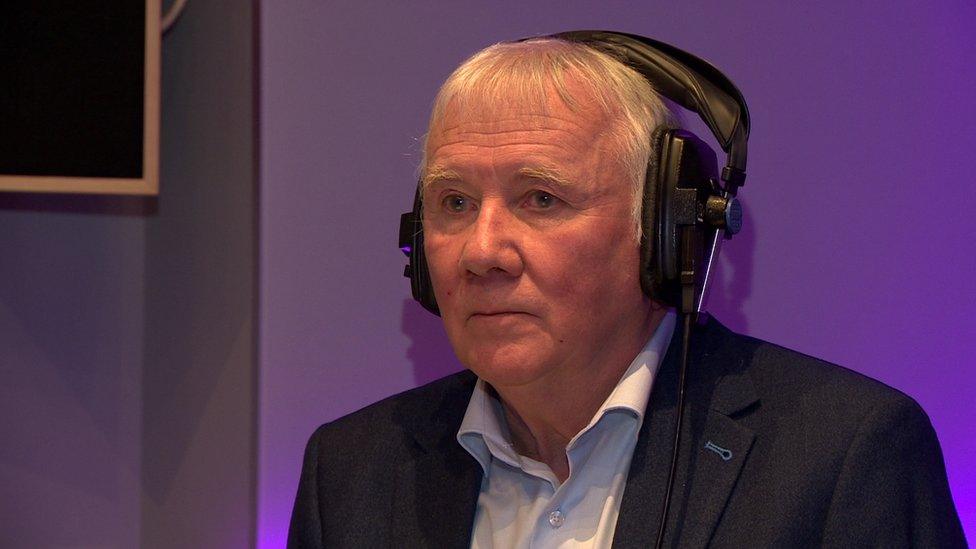Stormont: Civil Service task 'more challenging' than last stalemate
- Published
- comments

Sir Malcolm McKibbin was speaking on the BBC's Red Lines podcast
The challenge for civil servants to run Northern Ireland is "much greater" now than during the last devolution collapse, a former civil service head has said.
Sir Malcolm McKibbin led the NI Civil Service from 2011 until 2017.
On Wednesday, MPs backed legislation giving civil servants powers to take some decisions in the absence of Stormont ministers.
Power-sharing government has not functioned since February.
It collapsed after the Democratic Unionist Party (DUP) walked out of the first minister's post as part of its ongoing opposition to the Northern Ireland Protocol element of the Brexit deal.
That led Northern Ireland Secretary Chris Heaton-Harris to set a budget for Stormont and provide civil servants with powers to take some decisions to ensure public services can continue to function.
But Sir Malcolm accused the government of making the task of civil servants more complicated.
In a rare interview, he told the BBC's Red Lines podcast that guidance published by the government about how civil servants should take decisions would exacerbate pressures they faced.
The guidance states that the "primary principle" departments, external must control is to manage their spending within the limits of the budget laid out by Mr Heaton-Harris.

Power-sharing government has not functioned in Northern Ireland since February
"The focus during most of my time in charge was predominantly around political talks preventing the institutions from collapsing or trying to restore them," Sir Malcolm said.
"But the challenge now is greater because primarily before it was permanent secretaries sorting out how to allocate additional resources - this time it's about reducing services and there will be losers."
Sir Malcolm is the third former senior civil servant to speak out about the current impasse in recent weeks.
'This isn't our first rodeo'
His successor Sir David Sterling said the civil service was being put in an impossible position, while Andrew McCormick, a former permanent secretary, called it an "affront to democracy".
Sir Malcolm said he was speaking out to "make sure the public understand the difficult position civil service colleagues are in".
"This isn't our first rodeo in terms of having no ministers. Permanent secretaries are public servants who want to do well for the public," he said.
"I don't believe any will refuse to do the best job they can in terms of maintaining public services."
He added that the lack of scrutiny around decisions that were expected to be taken for as long as the stalemate continues at Stormont was "not a good thing".
Without a sitting assembly, assembly members cannot sit on statutory committees to question and scrutinise decision-making by relevant departments.
Related topics
- Published25 November 2022

- Published21 November 2022

- Published14 November 2022
